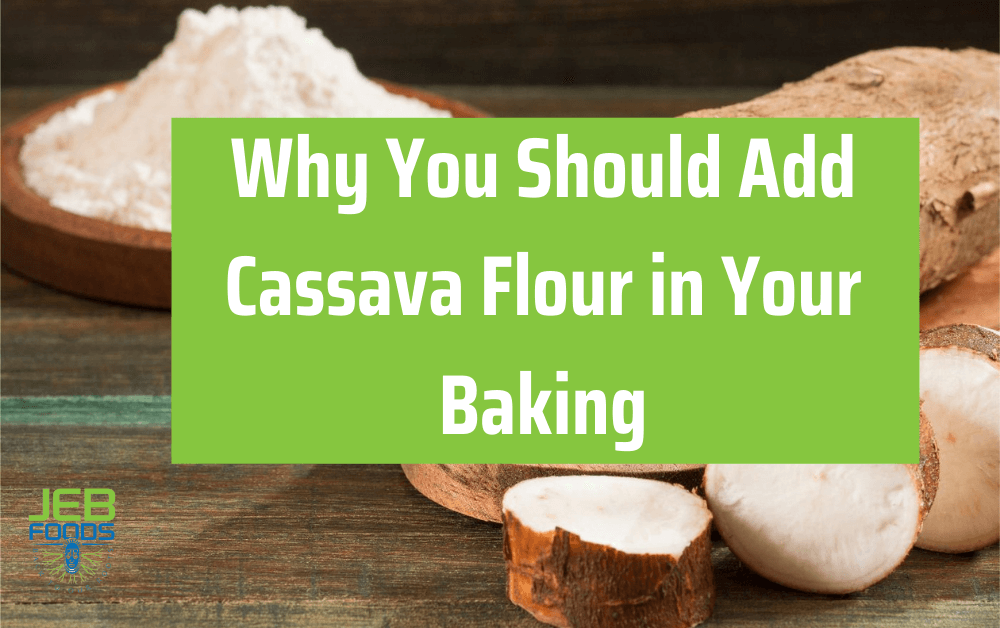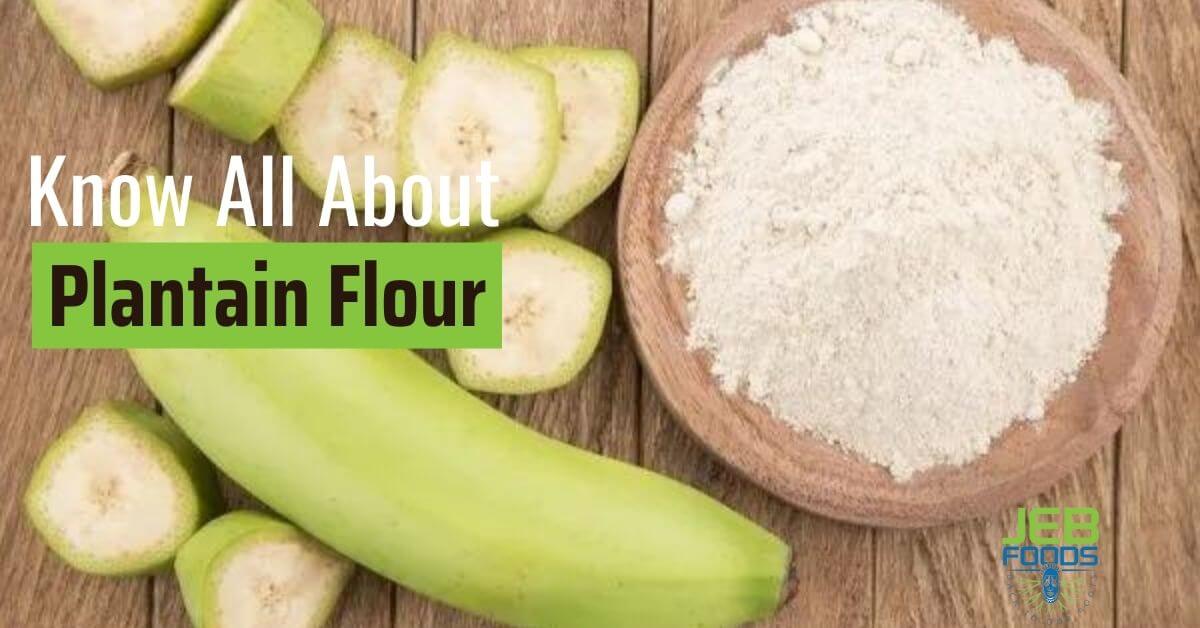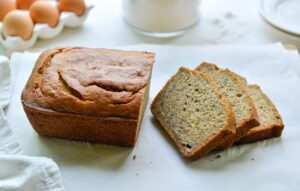I want to show you why you should add cassava flour to your baking. I am sure you may have heard of this previously and wondered what all the buzz was about.
Cassava is widely consumed in many regions of Africa, Asia, and South America.
It is, in fact, an ancient seed that was widely utilized as a miraculous meal in South America long before Columbus discovered America.
With many health benefits and the variety of options it brings to baking, I am rooting for it, and I will want you to check it out as well.
Here are the health and nutritional benefits of cassava flour.
Let’s now see how valuable and why you should add cassava flour to your baking.
Why You Should Add Cassava Flour to Your Baking Recipe
Table of Contents
ToggleCassava flour is a popular gluten-free and grain-free baking and cooking flour. It’s also an excellent nut-free flour.
It’s also light and powdery in texture, rather than grainy or gritty. These characteristics, as well as the fact that it may be substituted for wheat flour in many recipes on a 1:1 ratio.
Cassava flour has an earthy, faintly nutty flavor, which isn’t surprising given that it’s formed from a ground-up root vegetable, but it’s worth noting when tasting your completed dish.
Some individuals may be put off by recipes that use a lot of cassava flour and are thicker/deeper (like loaf cakes).
It is high in carbs and protein and low in fat, ideal for a low-carb diet and adds a nice golden brown color to your recipes.
When you bake or prepare using gluten-free ingredients, the finished result may be darker than baked goods made with gluten-containing components such as buckwheat, amaranth flour, and almond flour.
It is Tenderer. This means you won’t have to cut it as frequently. When looking for a gluten-free bread recipe, cassava flour will undoubtedly make an appearance in your kitchen.
Many individuals enjoy the texture of brownies or baked goods with cassava flour added for extra health benefits.
The product’s texture gives a pleasant outside-in flavor instead of whole-grain flour, which may be bland and difficult to chew.
Even if you don’t like brownies, you can appreciate their texture when baking or cooking something else, especially if it’s flavored with cinnamon or vanilla.
Do you know you can mix gluten-free flours to bake an incredible recipe: See how here
Nutrients in Cassava Flour
Cassava flour’s nutritional value cannot be overstated.
It contains more fiber than whole wheat, more protein than corn, nearly twice the potassium of a banana, nearly twice the iron of spinach, and nearly three times the magnesium of whole wheat.
It is also a complete protein, including all eight amino acids and all eight macro minerals required by the organism.
This implies that eating one tablespoon per day would supply your body with all the necessary amino acids and trace minerals required to create and repair tissues. This is why it is frequently referred to as a superfood.
Cassava is high in carbohydrates; 1 cup of cassava flour (285 g) provides around 110 g of carbohydrates, 5 grams of fiber, and approximately 4.5 grams of sugar.
Cassava flour is also extremely high in vitamin C, with one cup containing nearly the required daily amount.
There are 19 to 2.21% resistant starch concentrations in cassava flour, similar to the soluble fiber properties.
These resistant starches have many benefits for the digestive system, from supporting good bacteria to reducing inflammation and bloating to promoting good digestion.
Before it is turned into cassava flour, traditional fermentation of cassava mash increases nutritional bioavailability and protein, magnesium, and iron levels.
How Should I Use Cassava Flour in Baking
When baking with different flours, cassava flour may be used in a variety of ways.
Cassava flour is a hearty and rich flour that may produce cornbread, biscuits, pizza dough, brownies, and other baked goods.
As you gain baking skills, you will discover that you utilize different recipes and experiment with new baking techniques. However, this flour has several advantages and may be utilized for several purposes.
Here are a few ways to include cassava flour in your baking.
Bread Crumbs
By incorporating this intriguing flour into the dough, you may convert regular bread into something extraordinary.
Cassava has a pleasant taste and is an excellent meat tenderizer in casseroles and other recipes. Add a few drops of cassava wine for a little more oomph.
Baked Goods
Cassava is excellent in baked products such as cookies, cakes, brownies, pies, and other baked goods.
It is an excellent stabilizer for beating sugar and a great sweetener in desserts.
Biscuits
Because it has a moderate and light flavor, cassava flour is also an excellent option for biscuits. You might not have to spend too much time at home making biscuits.
It is important to keep in mind, however, that biscuits should not be fried.
Instead, use it in a skillet or in a pan with oil to prevent sticking. You may bake these biscuits as singles or as multi-frosted biscuits.
Cake Mix
If you want a particular flavor in your cake, you should mix your cake using all-purpose flour.
For the greatest results, only use one type of cake mix for two or three recipes that are baking at the same time. Cassava acts as a thickener in cake mixtures to keep them moist.
Baking
If you want to make a cake, use cassava flour to thicken it before adding the wet ingredients. After that, carefully add the dry ingredients and stir them together.
This recipe calls for a normal six-ounce loaf of bread. The last cake should be golden brown, crumb-coated, and cooked.
Cakes
If you’re making a cake for a birthday party, a baby shower, a wedding, a holiday feast, or a family breakfast, don’t forget to include this flour in your recipe.
It adds lightness and freshness to the cake. This is since it makes the cake simpler to cut and frost.
What Effect Does Cassava Have On Your Body
Cassava is a calorie-dense vegetable that is high in carbs as well as essential vitamins and minerals. Cassava contains vitamin C, thiamine, riboflavin, and niacin.
The leaves, which are also edible if cooked or sun-dried, can contain up to 25% protein.
Is It Possible To Bake Bread With Cassava Flour
Unlike other grain-free and gluten-free alternatives, you can very much substitute this cassava flour for all-purpose flour and get a very decent, if not fantastic, outcome.
To put it another way, you don’t have to go through the hassle of producing (or purchasing) a gluten-free flour mix.
The addition of pectin to cassava flour allowed for bread baking with acceptable bread quality even at concentrations as high as 40%. Aside from cassava concentration, the kind of cassava flour had the greatest impact on bread quality.
Can You Replace All-Purpose Flour With Cassava Flour
While cassava flour may normally be substituted for wheat flour and all-purpose flour in a 1:1 ratio, it is not ideal for every recipe. Cassava flour has a similar consistency to all-purpose flour, although it is lighter.
Unlike other grain-free and gluten-free alternatives, you can very much substitute this cassava flour for all-purpose flour and get a very decent, if not fantastic, outcome.
To put it another way, you don’t have to go through the hassle of producing (or purchasing) a gluten-free flour mix.
When compared to all-purpose white flour, it is nutritionally better. Cassava flour has more fiber than rice flour but less fiber than whole wheat and chickpea flour.
Cassava flour has fewer vitamins and minerals than enhanced white flour, whole wheat flour, chickpea flour, or brown rice flour.

What are the Health Benefits of Baking with Cassava Flour
There are numerous health benefits of Cassava flour which is why it is considered a good option for baking.
Cassava flour has a low calorie, fat, and sugar content. This has a low-fat level when compared to other gluten-free flours such as coconut or almond.
It contains more water and lower calorie density than flours such as corn, plantain, rice, coconut, sorghum, and wheat.
It’s hypoallergenic.
All-purpose Flour alternatives like cassava flour can be handy when dealing with food allergies and dietary restrictions.
Cassava flour is inherently vegan and devoid of nuts, grains, and gluten, making it a perfect alternative for people with dietary sensitivities, according to registered dietitian Andrea Mathis, RDN.
It aids digestion.
It can make stools easier to pass and cause bowel movements to be more frequent. If you have constipation, you should substitute cassava flour for white flour.
It can help you have smooth bowel movements without constipation since it contains complex carbs that aid your digestive system.
Reduce your chances of developing cardiovascular disease.
Several recipes use wheat flour as a replacement. However, they are harmful and deficient in vitamins and minerals. Cassava has a lot of protein, iron, phosphorus, and calcium. It’s a great source of fiber.
It contains good lipids essential for heart health, and substituting wheat flour with cassava flour will help you lower your risk of cardiovascular disease.
What Can Cassava Flour Be Used For
That’s a question I see getting asked a lot by people who are starting to learn about healthy baking and meal preparation.
Cassava is a starchy root vegetable that has been cultivated in South America for hundreds of years and is widely consumed.
The interesting thing about this vegetable is that it contains many minerals and fiber but doesn’t taste sweet. It is very easy to digest, and it’s a great alternative if you’re looking for a grain that has a little bit of a kick.
You can bake many different things, such as pizzas, cakes, biscuits, cornbread, and pasta. It can also be used in a variety of different dessert recipes, such as pies and cakes.
The grain produces a nice fluffy texture that doesn’t stick to the food for cooking and baking. It leaves the food moist on the inside while still retaining the natural crunchiness.
Therefore, it’s perfect for making bread and crackers or just using it to add texture and flavor to other foods.
Cassava flour can be used in a wide variety of homemade recipes, even gluten-free and wheat-free recipes.
You can also substitute it for other whole grains to reduce your calorie intake or lower your gluten intake.
Another way to use cassava flour in your recipes is in the substitution for rice. Even if you don’t replace rice with cassava flour, it can be used in white rice or cheaper grains.
Where To Buy Cassava Flour
If you desire to buy well-processed cassava flour, then I will recommend it the best for you. Jeb foods cassava flour offers you a grain-free, nut-free, gluten-free cassava flour that is stored hygienically.
If you purchase come other brands, you may not get the same baking results; that is why you should use Jeb foods cassava flour for your baking.
Is Cassava Flour poisonous
Cassava flour, on the other hand, is not toxic. Cassava root has naturally occurring cyanide components that can be harmful.
However, the manufacturing procedure that the roots go through eliminates the poisons, making the flour safe to consume.
Cyanide may also be found in almonds, millet sprouts, lima beans, soy, spinach, bamboo shoots, apple seeds, peach and apricot pits, and apricot pits.
So please don’t believe it’s bad for your health. Cassava has a lot of protein, iron, phosphorus, and calcium.
It offers a variety of textures and flavors, so you’ll never get bored. Instead of struggling with low carbohydrate diet issues, you can benefit from this incredible new resource.
Final Thought
Cassava flour is a good grain-free option because of its mild and neutral taste. Not to mention that it’s completely allergy-friendly, making it great for anybody with gluten, nut, or dairy sensitivity.
It’s virtually foolproof to substitute it for regular flour in recipes, and it has more health benefits than gluten wheat flour.
Overall, it’s a wonderful flour substitute for any recipe, and you should use it for baking.
Here is my best-recommended cassava flour in the US market, Jeb foods cassava flour
See more about gluten-free flours mix that can also be used for baking.




